The first U.S. cases of Covid-19 (coronavirus) were reported in January, 2020. By February, the virus had been detected in Mexico, and on March 11, 2020, the World Health Organization (WHO) declared Covid-19 an international pandemic. What had been an epidemic had now become a pandemic. Since then, coronavirus-related infections have spiraled out of control in the U.S. and Mexico, and they continue to rise at an alarming rate. At the time of this writing, over 2 million cases and nearly 200,000 deaths have been reported in Mexico, compared to nearly 30 million cases and over 500,000 deaths in the United States.
Being that the hardest-hit U.S. ethnic group by far has been Hispanics, it’s not surprising that the coronavirus has taken an inordinately high toll on mariachis.
Mexico City’s Plaza Garibaldi during the first days of the pandemic
Photos by Antonio Covarrubias
Fortunately, Covid-19 isn’t always fatal. The WHO calculates that only 3.4% of infections result in death, although mortality increases with age and the presence of other preexisting medical conditions. Most patients live to tell about it, as is the case with Guadalajara’s Mariachi Sol de América, where 100% of its members became infected last fall, all of whom survived.
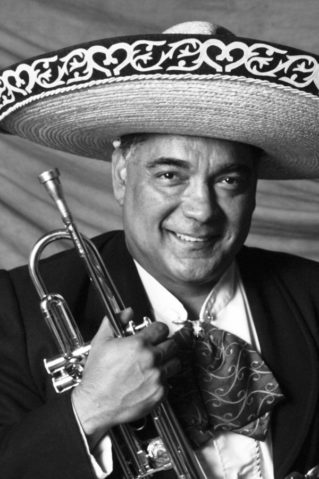
Rubén Moreno, leader of Tucson’s Mariachi Luz de Luna, affirms that all of his group became infected last Halloween after recording a television show in tight quarters. “At first I didn’t want to tell potential customers, but now I realize it’s actually a good selling point,” he says. “I assure them we’ve all had it and have recovered completely, so we can’t give it to them or catch it ourselves. I tell them we have so many antibodies that the Red Cross wants our blood plasma!” All of Rubén’s band members carry copies of their latest plasma test results with them, to put concerned minds at ease.
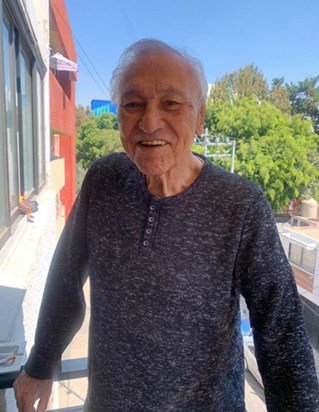
Ex-Mariachi Vargas member Mario Santiago recently spent a month in the temporary Covid treatment facilities set up at Mexico City’s Citibanamex Convention Center, and is now back home with his family. But not all are so fortunate.
Among those in Mexico City who recently succumbed to this pernicious virus are Lázaro Chávez, director of Mariachi Los Monarcas; Oswaldo Vásquez, director of Mariachi Arriba Juárez; Pepe López, director of Mariachi México ’70; Miguel Ángel Hernández, director of Mariachi Zacatecano de Pepe Aguilar; Octavio Gama, violinist with Mariachi Gama Mil; José Luis Aguilar “El Sandwich,” longtime guitarist with Mariachi Los Arrieros de Pedro Fernández; Manuel Torres, brother of ex-Vargas trumpeter Federico Torres; Miguel Viurquis, former trumpeter with Juan Gabriel and his brother, violinist Raúl Viurquis (brothers of former Vargas violinist Juan Manuel); and Benito Fuentes “don Benny,” longtime bus driver for Mariachi Vargas and other groups. Guadalajara lost violinist Juan González, brother of ex-Vargas member Pancho “El Pilón”; and vihuela player Enrique Caratachea, cousin of the famous Sergio. South Texas lost vocalist Cassandra Trejo and mariachi educator Héctor Cantú.
Unfortunately, the list above only represents a tiny sampling of those in mariachi circles who have perished from Covid–19. Plaza Garibaldi’s Ollin Yoliztli mariachi school prepared a poignant video homage to those from their community who have recently perished.
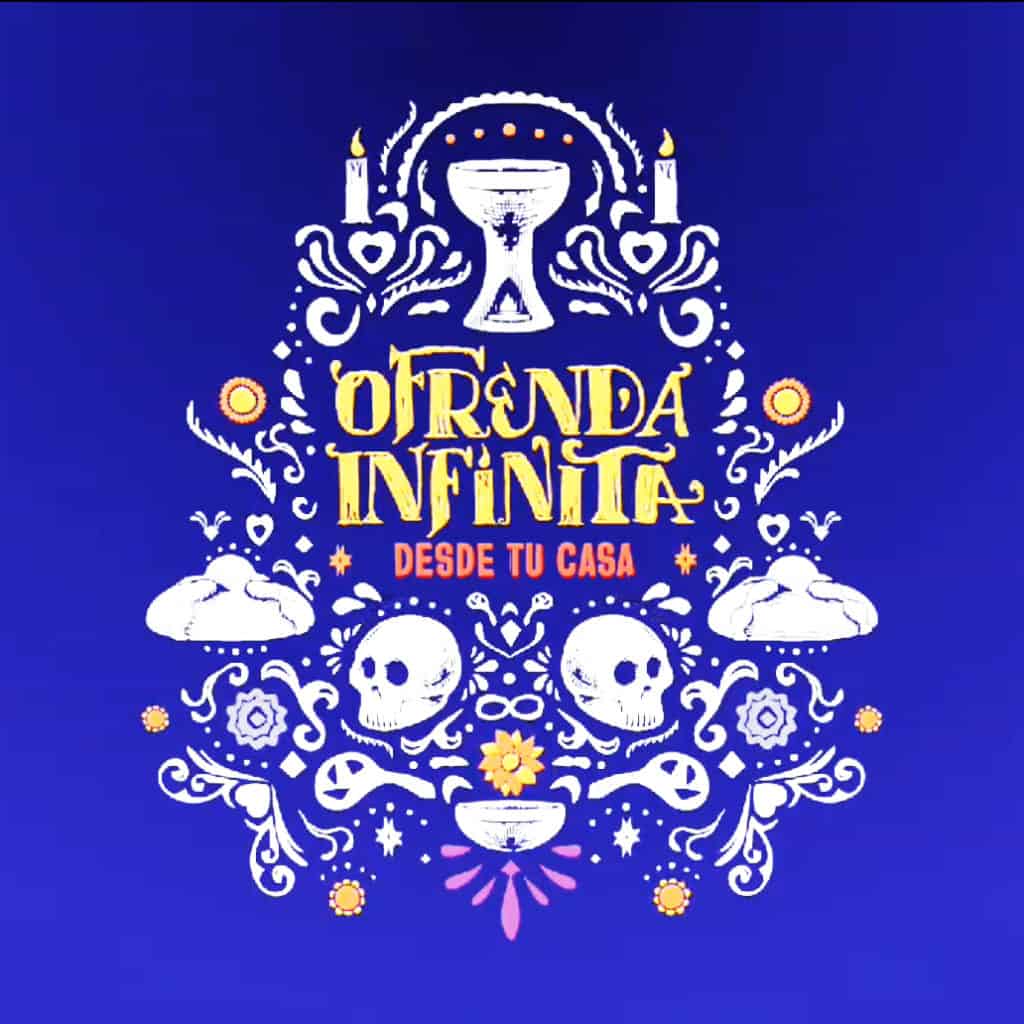
Video offering by Escuela de Mariachi Ollin Yoliztli en Garibaldi
Arturo Ramírez, leader of the Organización de Mariachis Unidos de Los Ángeles (OMULA), confirms: “Just during the past few weeks, there’s been a major wave of Covid deaths in our local mariachi community. Dozens of compañeros have perished from the virus.”
Multi-instrumentalist Josué Eduardo “Eddy” López, currently a Los Angeles, California resident, observes: “Almost every mariachi musician I know here in LA has gotten the virus, but most of us have survived and recovered. The mortality rate for the young and healthy has been low, but a lot of the old guard haven’t been so fortunate.”
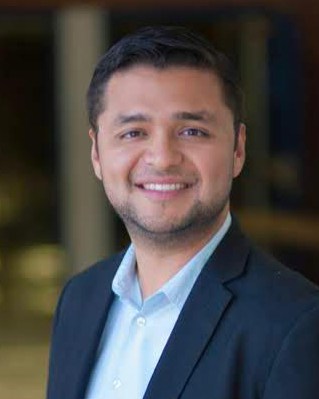
José Hernández, director del Mariachi Sol de México, confirms that seven of his group members were infected with Covid, but that they’ve all recovered. “The advantage is that most of my musicians are young and healthy,” Hernández reminds us.
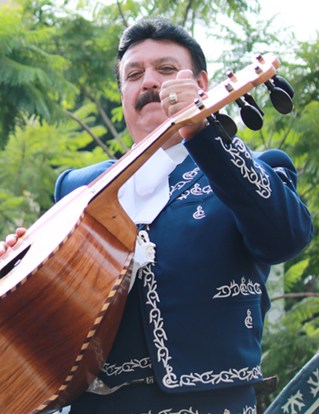
Jesús Guzmán, director of Mariachi Los Camperos, affirms that three of his musicians came down with coronavirus. “Two of them had only mild symptoms but our guitarrón player, Juan Jiménez, was really hit hard and we lost him, may he rest in peace.”
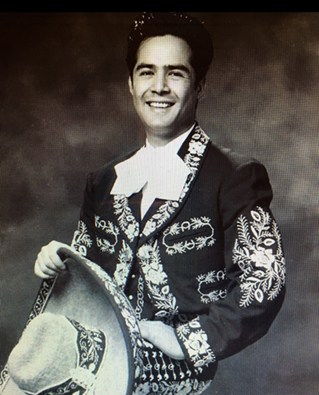
Héctor Castro, better known as “El Zopi” — former violinist with Los Galleros, Sol de México, Los Camperos, and other well known LA-area groups — is also a former member of Mariachi Cobre. El Zopi comments on the current superabundance of Covid-related funerals:
I can’t believe how many funerals I’ve played since this pandemic began. It seems like never a day goes by that I don’t play at least one funeral! There are cemeteries around here that used to bury between 8 and 10 people a day, but that now bury up to 50. It’s common to see 4 or 5 different mariachi groups playing in the same cemetery at the same time; some nearby, others at a distance. And this goes on all day long.
A mariachi musician, no matter how good they are or how good a group they belong to, doesn’t have any medical insurance, life insurance, or retirement plan. We have to keep on playing under dangerous conditions and risking our lives to be able to make a living. This is why so many of our fellow musicians have died of Covid. It saddens me that when these friends who’ve given their lives for their music pass on, their families can’t even bury them with dignity, because they’re forced to solicit donations to cover funeral expenses.
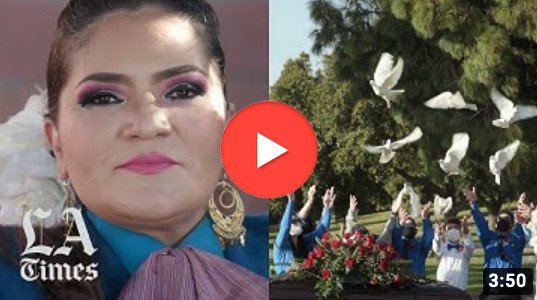
Texas violinist Miguel Guzmán, leader of Mariachi Los Galleros de San Antonio, testifies about his own recent Covid experience: “I thought I was on my deathbed. After a month in the hospital, I lost 40 pounds. But by the grace of God, I got through it and I’m still alive. I’m now back to performing, and teaching on Zoom.”
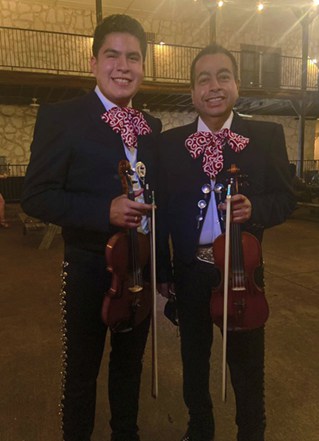
Álvaro Paulino Jr., leader of New York City’s Mariachi Tapatío, remarks: “My father and I both got it, but we recovered. My uncle Carmelo wasn’t so lucky, though, and we lost him.”
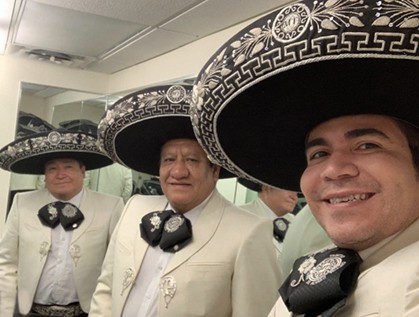
Carlos Martínez, musical director of Mariachi Vargas de Tecalitlán, describes how the pandemic has affected his group:
Three of my fellow group members came down with coronavirus, but fortunately they’re all well now. Most of our work is public concerts and in theaters, so obviously our number of performances has been seriously reduced. Some of my compañeros give virtual classes, and we’ve tried to take advantage of this down time to make recordings that we had pending. This crisis also provides us with a good opportunity to study our instruments individually at home.
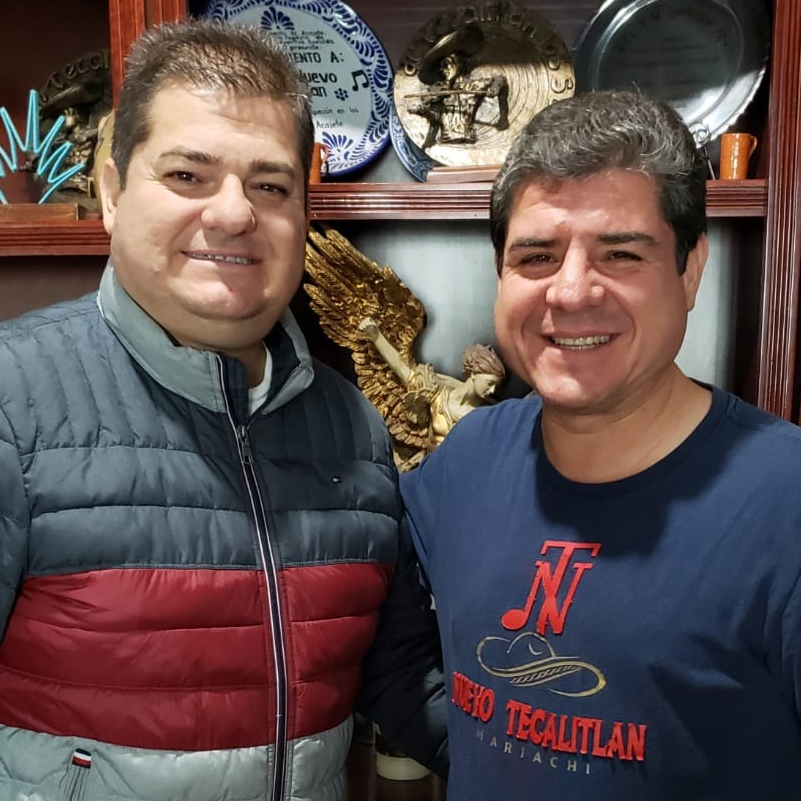
Ángel Martínez, brother of Carlos and leader of Mariachi Nuevo Tecalitlán, comments:
Several of our members came down with coronavirus last May, but they all recovered, thank God. So far, I can only count two or three local musicians who’ve died from it. For us, the worst thing been the loss of work. Since the pandemic arrived, we’ve only worked about a third as much as we usually do. We’ve even lost a couple of our best clients to Covid. We don’t play concerts any more, and the only jobs we accept are private parties for known customers. The problem is that now when they call to ask me what we charge and I say, “The same as last time,” they reply: “But we’re in a pandemic. What’s your Covid price?” They want a Covid discount! At any rate, we wear masks whenever possible, keep our distance from the guests, and avoid all direct contact with the public.
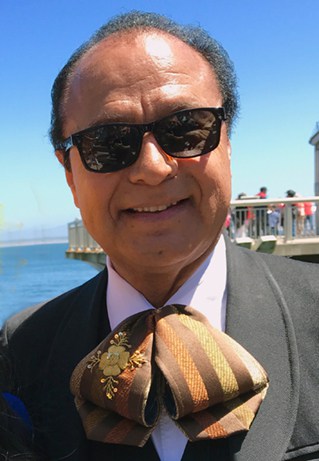
Javier Vargas, leader of the Watsonville, California ensemble Mariachi California, takes even more precaution:
When a customer calls me to book a chamba, the first thing I tell them is: “So we can protect ourselves and your guests can, too, I insist on the following:
- The gathering can’t be too large.
- It must be outside, in the open.
- Those who prepare and serve food need to wear masks and gloves.
- All guests must wear masks, same as the mariachi.
- Plenty of extra masks must be available, in case any of the guests didn’t bring one.”
If they won’t accept these conditions, I simply won’t book the chamba. And if we start to play and I see that a lot of people aren’t wearing masks, I immediately stop the music and announce in a loud voice: “We came here under the condition that all guests were going to wear masks. If any of you don’t have one, there are plenty for everyone.” So far, no one has ever refused, because I warn them in advance that if they don’t put their masks on, we’ll cancel the music and leave!
This past year also took a heavy toll on others in the mariachi world who perished of causes unrelated to Covid. Among these are Jesús Rodríguez de Híjar, director of Mariachi de América; Pepe Chávez, director of Mariachi Oro y Plata; Miguel Ángel Hernández, director of Mariachi Zacatecano de Pepe Aguilar; mariachi researcher and historian Hermes Rafael; and the multi-talented François Gouygou, better known as “Pancho, el Charro Francés.”
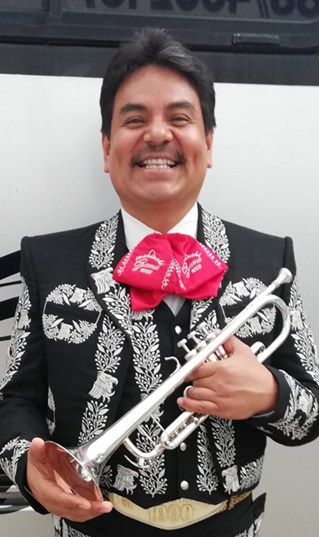
Francisco Mora teaches trumpet at Plaza Garibaldi’s Ollin Yoliztli mariachi school. He’s currently a member of Mariachi Gama Mil. Panchito informs us:
I live in an apartment that overlooks Plaza Garibaldi, so I’m aware of the changes our mariachi community has undergone due to Covid–19. There are practically no complete groups anymore, only maromeros (solitary freelance musicians who assemble groups on the fly). Before the pandemic, the average mariachi here consisted of about nine members, but now the norm is only four (guitarrón, vihuela, trumpet and violin), and sometimes only three (guitarrón, vihuela, and one melody instrument). Lots of families and tourists used to make a pilgrimage to this emblematic site to hear our beautiful Mexican music, but few come any more. It’s a sad situation.
In these times of Covid, it shouldn’t surprise any of us that restaurants are reducing their days and hours of service. And if they still present live mariachi music, you can expect the groups to be reduced in size. Pancho Villa’s Mexican Grill, located in Fontana, California, is a notable exception. Hipólito Puentes, musical director of Mariachi Internacional de México, the group that works from Thursday to Sunday at that family restaurant, comments:
We’re saddened by what’s happening; it hurts all mariachis everywhere. Fortunately, our founder, Francisco Jara, thinks differently from other entrepreneurs. He believes that in times like these, it’s more necessary than ever to keep the restaurant open and maintain a complete mariachi to cheer up those who visit us. Pancho believes that just listening to an hour of mariachi music allows a visitor to endure at least a full week of confinement. Rather than pare down the group, he’s increased it to 13 musicians: six violins, three trumpets, and four armonías. On Valentine’s Day there were 14 of us! As far as I know, we’re currently the only show mariachi that performs regularly in the entire Los Angeles region. Cielito Lindo has closed its doors, El Mariachi shrunk its group, and the Guadalajara Grill and Casa Sánchez no longer present live music. But remember the saying, “There’s no evil that can last a hundred years…” The good times will soon return. Meanwhile, we’re not going to let the restaurant nor the mariachi go downhill. Come visit us at Pancho Villa’s!
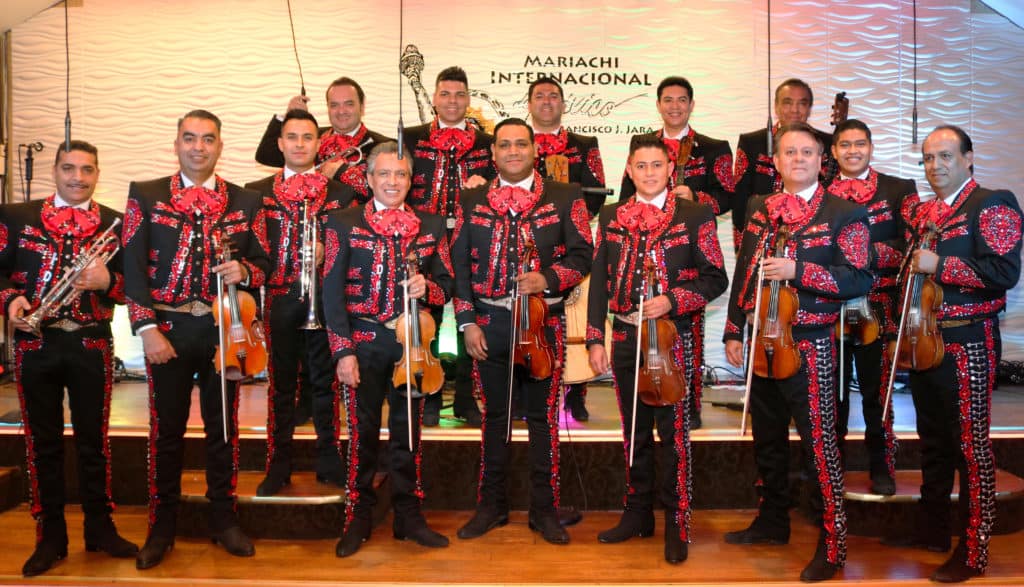
Back row: Fernando Velásquez, Mauricio González, Fernando Ríos, Javier Jáuregui, Timoteo González.
Front row: José Manuel Ramírez, César Hernández, José Nolasco, Ricardo Cisneros, Misael Toribio, Manuel Muñoz, Hipólito Puentes, Moisés Vásquez, Óscar Domínguez.
Although this has been an unexpectedly long and frustrating pandemic, it does have an upside. Among other things, it’s accelerated exponentially our proficiency in distance teaching and distance learning, as well as in teleconferencing. For the first time, mariachimusic.com features an extensive library of free tutorials by Mariachi Vargas members. Musical collaboration at a distance has become common in ways that were unthinkable just a year ago, and we’ve found alternative ways to satisfy life’s necessities without clogging our highways and public transportation as much as we used to.
By its very nature, mariachi music is a collective activity, the primary function of which is to provide accompaniment for social rituals. It’s only natural that we miss this social interaction. When it comes back — and it definitely will — we’ll all be more appreciative of it than ever before. This pandemic can’t last forever. In the meantime, we can’t afford to stop practicing our musical instruments.
Psalm 30:5 (NASB) states that “Weeping may last for the night, but a shout of joy comes in the morning.” While it may be too early to shout for joy, the light at the end of the tunnel is already visible.
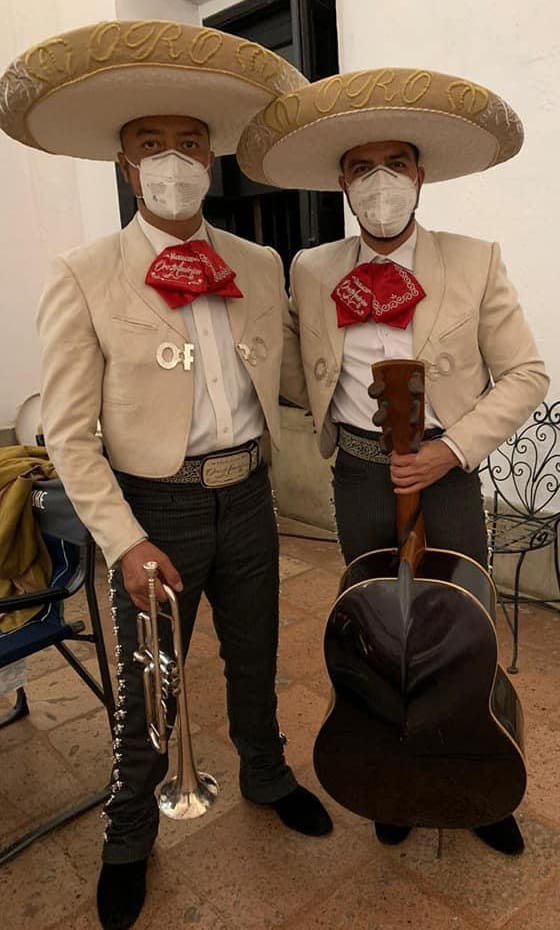
Let’s encourage everyone in our mariachi community to continue following safety standards like washing your hands frequently, wearing a mask, and adhering to your area’s social distancing guidelines. Together we can get through this pandemic.
Dates for the 27th Annual Mariachi Vargas Extravaganza in San Antonio are December 1–5, 2021. Hope to see you there!
Featured photo of Mariachi Águila de México by Natán Reyes Rojas
PLEASE LEAVE YOUR COMMENTS BELOW

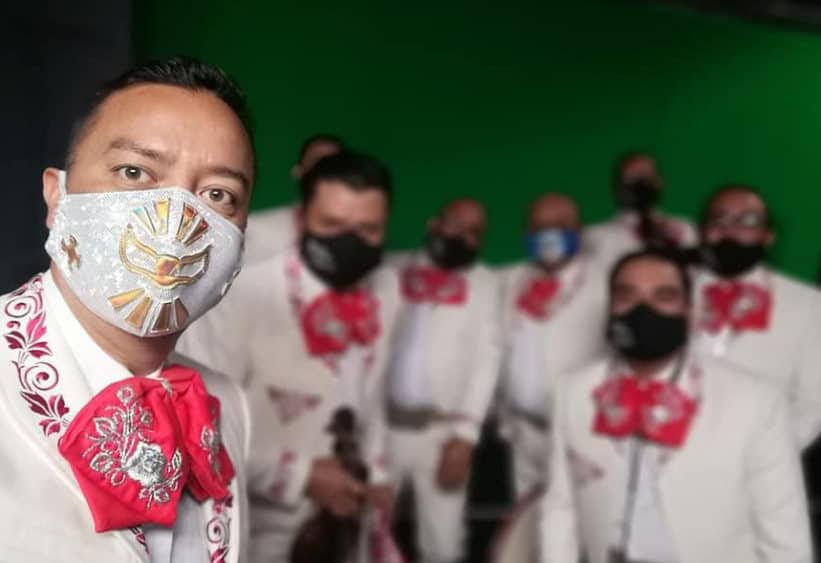

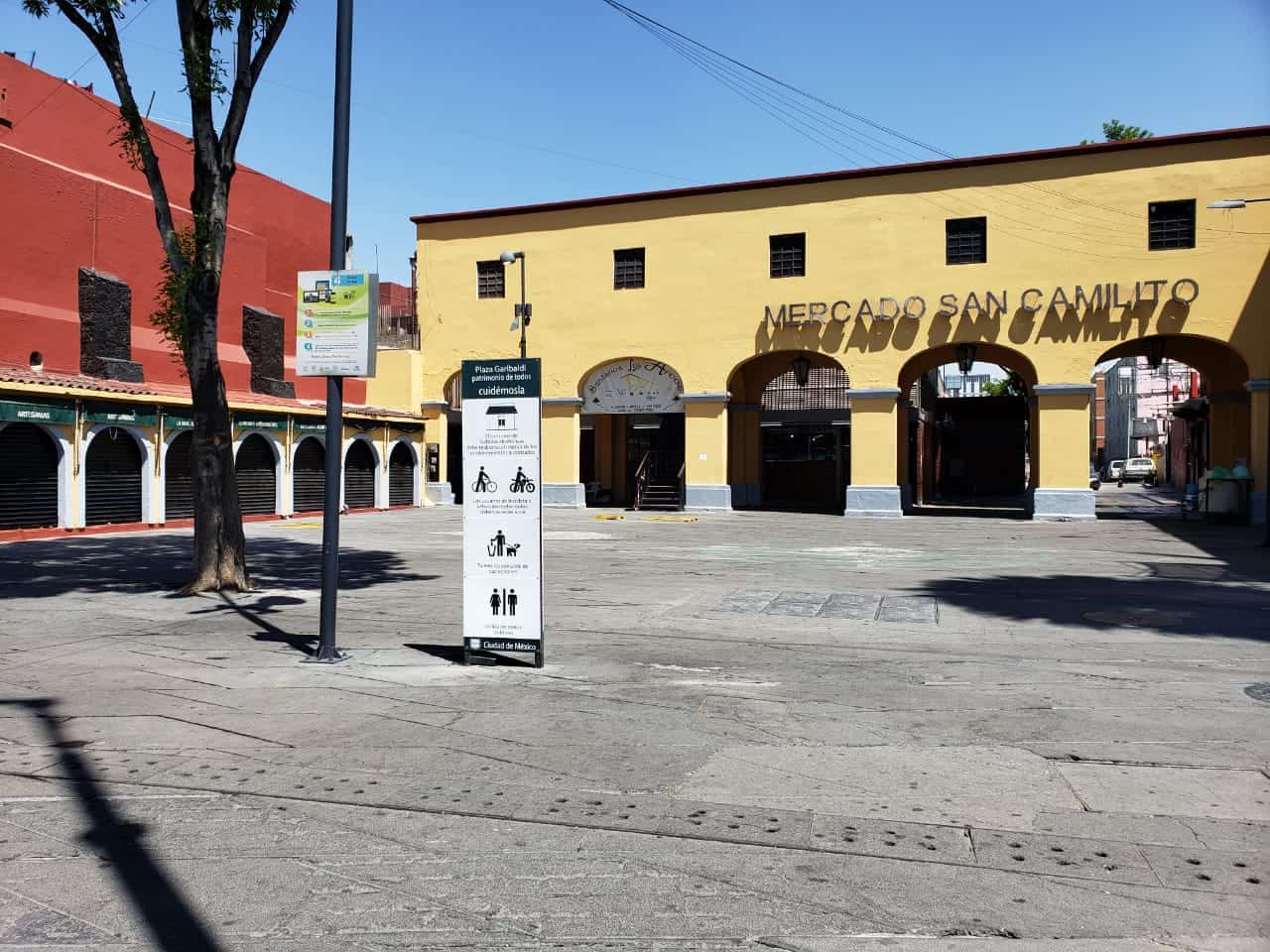
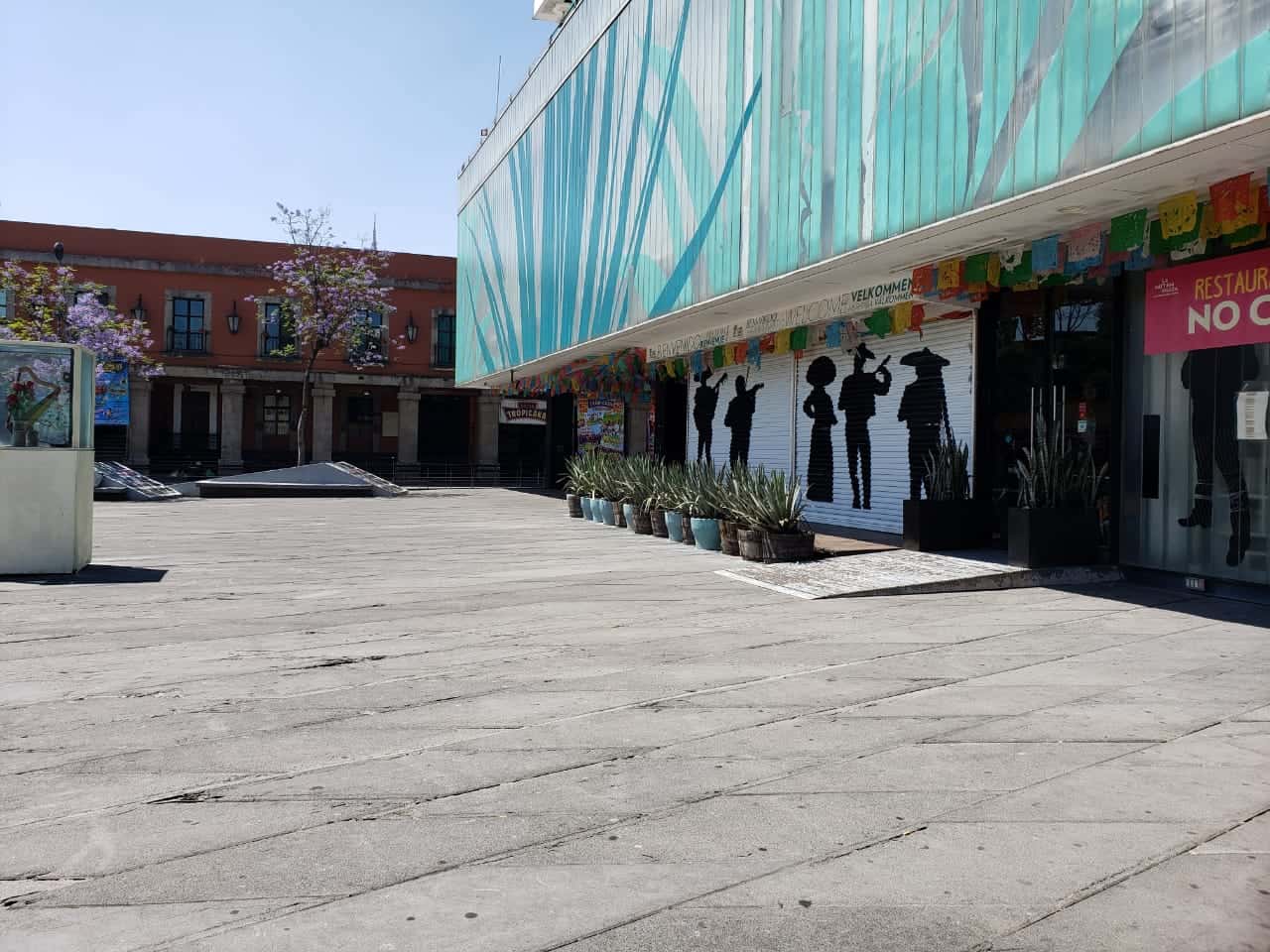
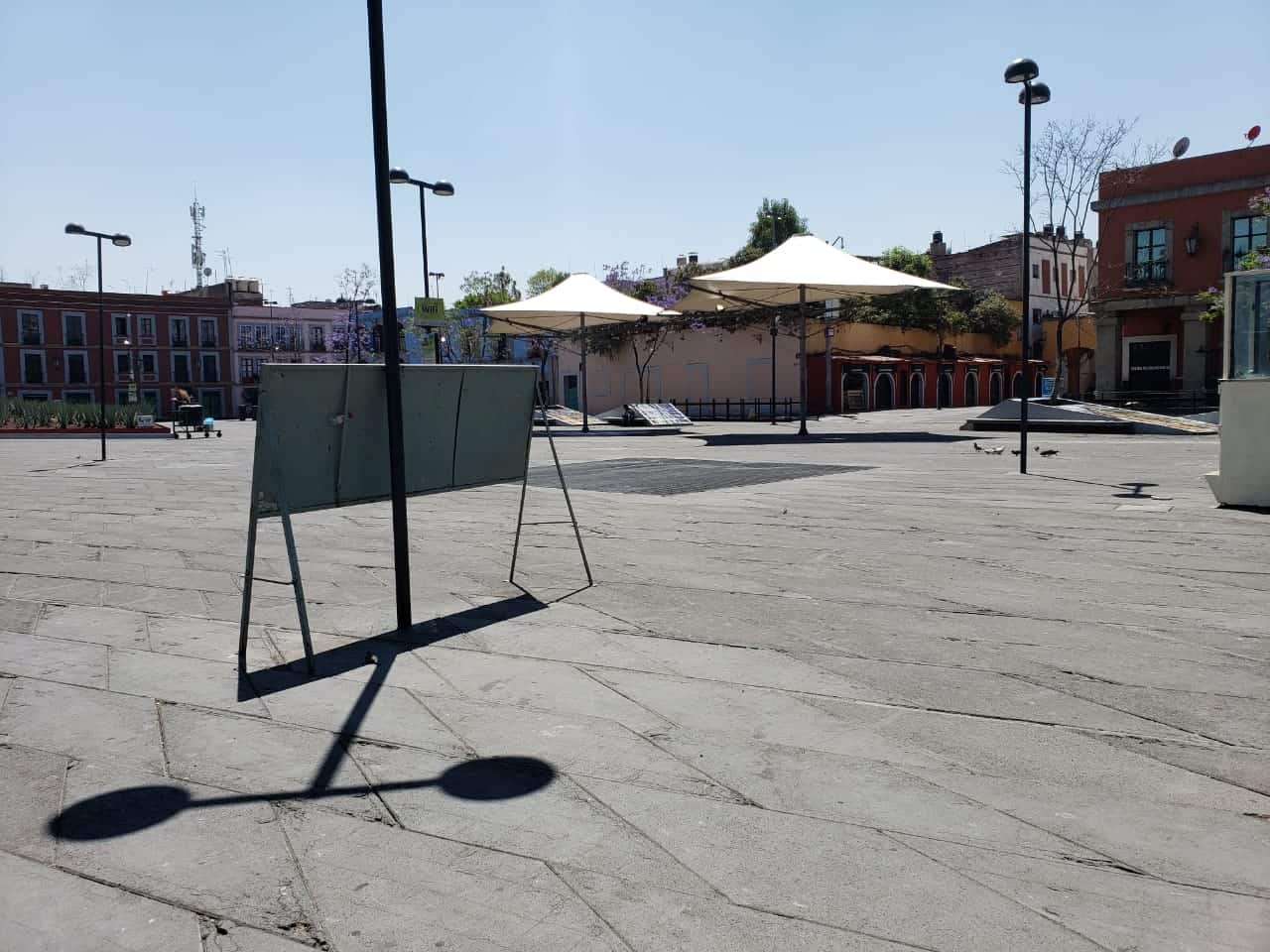
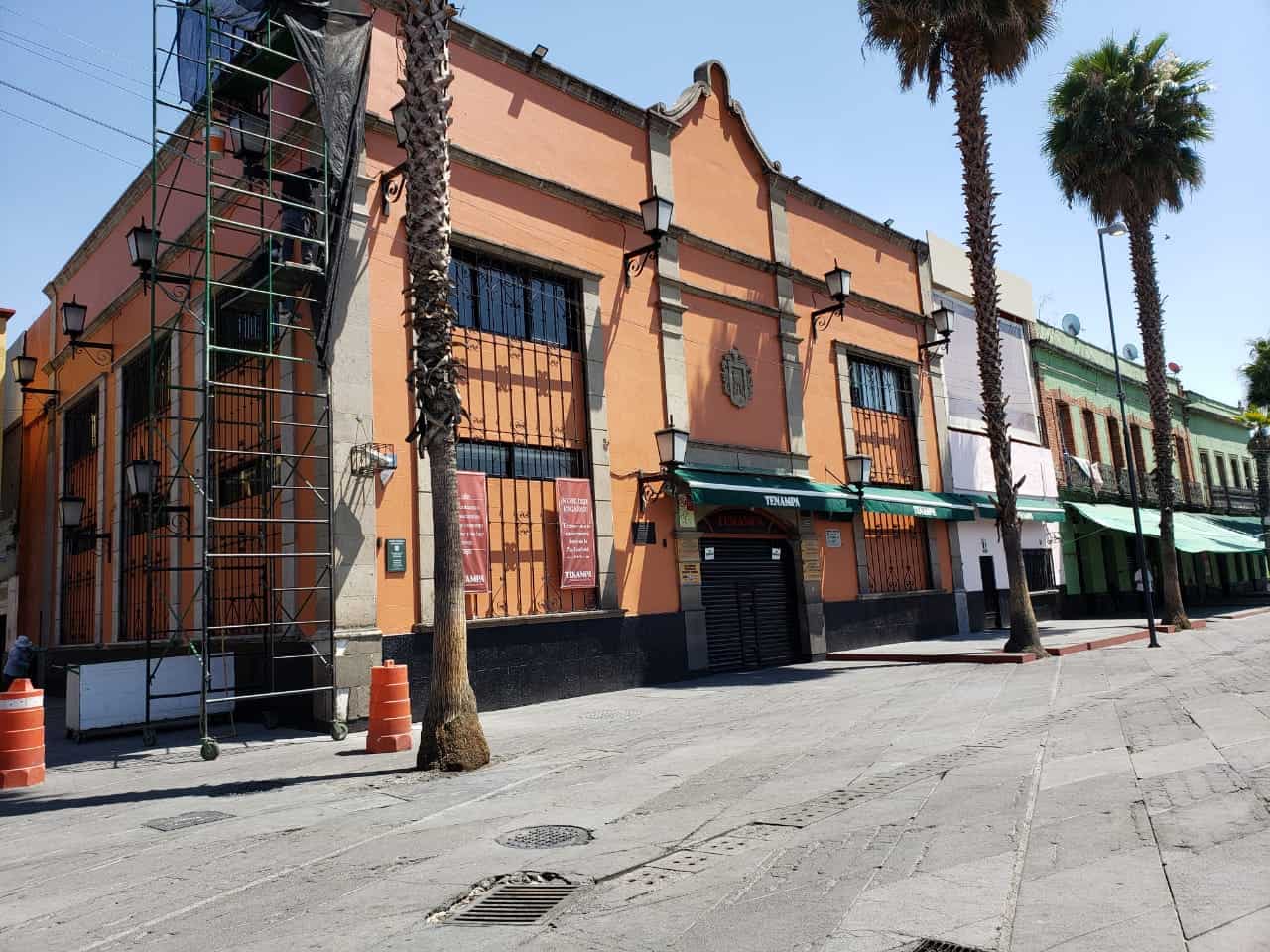
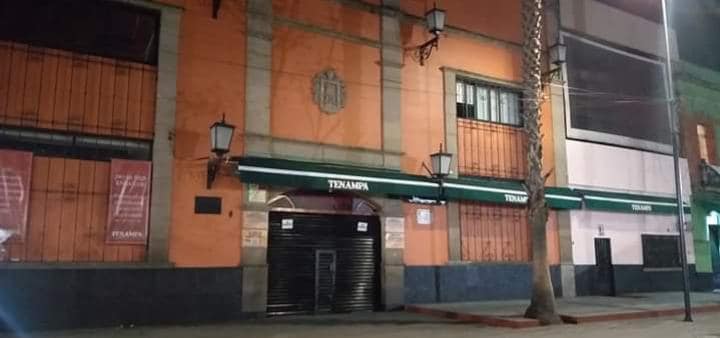

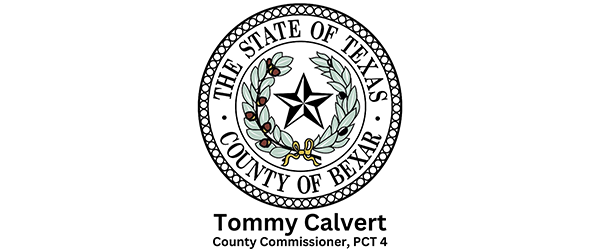



¡Excelente artículo!
Aún no dimensionamos las bajas que está dejando esta pandemia en nuestro gremio. Afortunadamente, muchos y muchas se han salvado, otros desgraciadamente no. Como aún no estamos del otro lado, hay que seguirnos cuidando. Cuídense todos y todas. Es muy triste ver casi a diario las publicaciones de otro deceso.
Saludos.
Es lamentable lo que está sucediendo en estos tiempos difíciles para nosotros, los músicos de mariachi, y también de otros estilos de música. Me apena ver la larga lista de compañeros y grandes músicos que se nos han adelantado, pero sé que nuestro espíritu es grande y que saldremos adelante y volverán los grupos grandes, para poder seguir difundiendo nuestra música como sabemos hacerlo. Por lo pronto estaremos a la espera con todas nuestras ganas y amor al mariachi para dar lo mejor de nosotros, que es nuestra música.
Reciban un cordial saludo de mi parte, y que Dios nos cuide a todos y a nuestras familias.
Hasta pronto,
Hipólito Puentes Macías “Polín”
Gracias, Jonathan Clark, por el artículo.
Primeramente, quisiera ofrecer mis condolencias para las familias que han perdido a un ser querido por causa de este virus. Para mí, esta situación fue la experiencia más difícil de mi vida, físcamente y mentalmente. Agradezco a mi padre celestial, a mi familia y a mis amigos y compañeros del mundo del mariachi por la atención que me brindaron durante esta pesadilla que pasé. Gracias por sus oraciones y por todos sus buenos deseos. Cuando salí del hospital después de un mes, bajé 40 lbs y perdí todo mi músculo y fuerza de mi cuerpo. No podía caminar. El covid atacó mis pulmones, y me mandaron a casa con oxígeno. Pero no me di por vencido. Estoy sumamente agradecido por la música que fue una gran parte de mi recuperación y una parte importante de mi terapia.
Cuando volví a casa, no podía sostener mi violín, no tenía sensación en los dedos, menos aire para tocar la trompeta, pero poco a poco fui mejorando. Gracias a mi esposa y mis hijos que me apoyaron durante esta difícil situación que fue una lucha diaria, actualmente ya estoy mejor. Ha sido una recuperación muy difícil de cuatro meses, pero no me le rajo. Gracias a Dios ya estoy saliendo de nuevo a trabajar con mi Mariachi Los Galleros de San Antonio. Doy una clase de trompeta a 10 alumnos por Zoom dos veces a la semana y espero volver en persona a dar mis clases en la universidad de Texas State en San Marcos la próxima semana.
Ya me administraron la primera vacuna y espero la segunda en dos semanas para tener la protección necesaria. Espero que todos sigan haciendo su parte para sobrevivir a sobresalir de esto, para pronto volver a tocar y presentar la música de mariachi en público y en conciertos.
Cuídense y nos vemos pronto. ¡Que viva el mariachi!
—Miguel Guzman
Jonny:
Te quiero agradecer, de parte de todos los miembros de mi grupo y todos los demás compañeros charros, por el tiempo que dedicaste para escribir este muy buen reporte acerca de los estragos que ha y sigue causando esta epidemia del COVID-19. Voy a tener en cuenta en mis oraciones a todos los compañeros que pasaron a una mejor vida en estos tiempos difíciles.
Que Dios te cuide y te proteja.